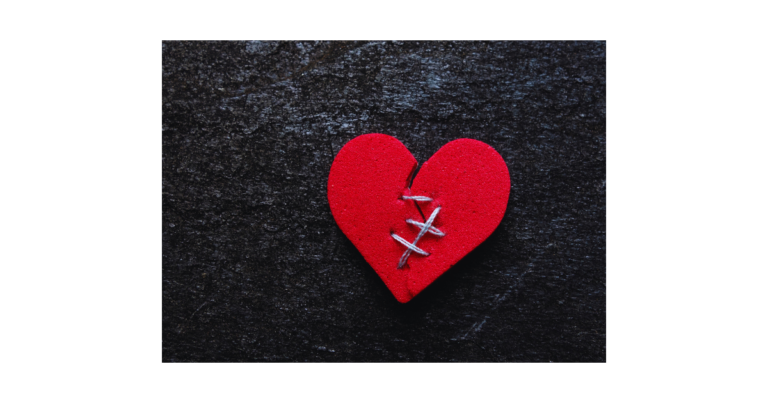Let’s face it: forgetting someone you once loved is no small task. It’s a journey filled with ups and downs, but it’s also one of the most rewarding steps toward personal growth and emotional freedom. If you’re struggling with this, know that you’re not alone. This guide will walk you through the process of healing and finding peace, with practical advice and heartfelt encouragement.
Completely Forget: Is It Possible?
The truth is, completely erasing someone from your memory isn’t realistic. Memories, good and bad, are part of what makes us human. Instead of trying to forget, aim to shift the emotional weight those memories hold. It’s about moving forward, not erasing the past.
The Healing Process: Taking It One Step at a Time

Healing isn’t linear. Some days will feel lighter; others might be tough. It’s okay to feel a range of emotions—anger, sadness, even relief. Acknowledge these feelings without judgment. They’re part of the process.
Dealing with Mutual Friends
Navigating mutual friendships can be tricky. If interactions with shared friends trigger negative feelings, take a step back. You don’t need to sever ties, but it’s okay to set boundaries. Communicate openly with your mutual friends about your needs during this time.
Letting Go of Negative Feelings
Negative emotions like resentment or guilt can weigh you down. Journaling, therapy, or even a heartfelt talk with a trusted confidant can help release these feelings. Remember, forgiveness—whether for them or yourself—is a gift you give yourself.
Mental Health: Your Priority

Protecting your mental health is crucial. Seek support if you’re struggling. A licensed clinical psychologist or therapist can provide tools to cope with intense emotions. It’s not a sign of weakness but a step toward strength.
Self-Care: The Cornerstone of Healing

Self-care isn’t just about spa days (though those can help too!). It’s about nourishing your mind, body, and soul. Try a new hobby, spend time outdoors, or simply allow yourself to rest. Self-care builds resilience and fosters self-love.
Family Members: Lean on Them
Your family can be a great source of comfort. Share your feelings with those who love you unconditionally. Their support can remind you of the good things in life.
Spending Time Wisely
Fill your days with activities that bring joy and purpose. Whether it’s learning a new language, volunteering, or rediscovering an old passion, keeping busy helps you create new, positive memories.
Why Do All These Efforts Sometimes Feel Worse?
You might feel like your efforts to move on are only making things harder. That’s because healing often brings buried emotions to the surface. It’s a good thing—a sign that you’re processing and growing.
One-Sided Love: Moving On

Unrequited love can feel like a wound that never heals. But remember, you deserve love that’s mutual and fulfilling. Focus on building your self-esteem and embracing self-love.
Forgetting Someone You Love
Letting go of someone you love deeply is heartbreaking. But holding onto a relationship that’s ended keeps you in a dark place. Remind yourself of why the relationship ended and the future you deserve.
Close Friends: A Lifeline
Good friends are invaluable during this time. Spend time with those who uplift you and remind you of your worth. If a friend asks how they can help, don’t hesitate to let them know.
When the Relationship Ended
Closure can be elusive. Sometimes, unanswered questions linger. Instead of focusing on what happened, try to accept that not all questions need answers. Peace comes from within, not from external validation.
Social Media Accounts: To Block or Not to Block?
Social media can be a minefield of old memories. If seeing their posts causes pain, it’s okay to mute or block them. Protecting your peace is more important than staying connected online.
Avoiding Self-Pity and Self-Loathing
It’s easy to fall into a cycle of self-pity, but this only does more harm. Practice self-compassion. Talk to yourself the way you would comfort a dear friend going through a hard time.
Making New Memories
Create fresh, happy memories to replace the old, painful ones. Explore new places, meet new friends, or try activities you’ve always wanted to do. These experiences will help you look forward rather than back.
Old Friends: Rekindling Bonds
Reconnecting with old friends can bring comfort and familiarity. They knew you before this heartbreak and can help remind you of your true self.
Finding Inner Peace

Inner peace comes from acceptance and self-awareness. Meditation, mindfulness, or simply taking a moment to breathe deeply can help center you. Focus on the present moment and let go of the past.
Cherishing Good Memories
Not all memories need to be painful. Hold onto the good ones without letting them pull you down. They’re part of your story, but they don’t define your future.
Self-Awareness: Knowing What You Need
Take time to reflect on your feelings and needs. What truly makes you happy? What do you want in a future relationship? Self-awareness is key to moving forward.
New Hobbies: A Fresh Start
Dive into something new! Whether it’s painting, dancing, or gardening, new hobbies can be therapeutic and offer a sense of accomplishment.
Loved Ones: Surround Yourself with Positivity
Your loved ones are your support system. Spend quality time with family and friends who bring light into your life.
Relationships: Looking Ahead
When you’re ready, opening yourself to new relationships can be exciting. Don’t rush; let it happen naturally. A potential partner should complement your happiness, not be the sole source of it.
Hope for the Future

Healing from a broken heart is a journey, but it leads to a brighter future. Keep hope alive. The world is full of possibilities and people who will love you in the way you deserve.
FAQ: Forgetting Someone You Love
1. How long does it take to forget someone? It varies for everyone. Healing depends on the depth of the relationship and your personal journey.
2. Should I stay friends with my ex? Only if it doesn’t hinder your healing. If it’s too painful, prioritize your emotional health.
3. How do I stop thinking about them? Redirect your focus to activities and people that bring you joy. Practicing mindfulness can also help.
4. Is it okay to cry? Absolutely. Crying is a natural way to release emotions.
5. Can I still love them but let go? Yes, you can cherish the love you had while accepting it’s time to move forward.
6. How do I deal with reminders of them? Remove physical reminders, like gifts or photos, if they trigger pain. Create new spaces filled with positivity.
7. What if I feel worse after trying to heal? It’s normal. Healing often brings suppressed feelings to the surface. Keep going; it’s a sign you’re processing.
8. Should I date someone new to move on? Not until you feel ready. Rebound relationships can complicate emotions. Focus on yourself first.
9. Can I forgive them even if they hurt me? Yes. Forgiveness is for your peace, not their approval.
10. What if I can’t forget them? It’s okay. The goal is to let go of the pain, not necessarily the memories.
Additional Resources
For further reading and support, explore these helpful links:
- Read more about the science of memory
- Learn about the stages of emotional healing
- Check out tips on setting healthy boundaries
- Explore the benefits of forgiveness
- Find mental health resources here
- Discover self-care tips
- Learn how family support aids mental health
- Explore ways to spend time meaningfully
- Understand emotional processing better
- Read about coping with unrequited love
- Find tips on moving on after a breakup
- Learn about the importance of close friendships
- Understand the concept of closure
- Learn how to manage social media boundaries
- Discover self-compassion techniques
- Find ideas for creating new memories
- Tips on reconnecting with old friends
- Learn mindfulness techniques
- Understand how to cherish positive memories
- Explore self-awareness exercises
- Find hobbies to try
- Learn about the impact of social support
- Read tips on building healthy relationships
- Find ways to cultivate hope





